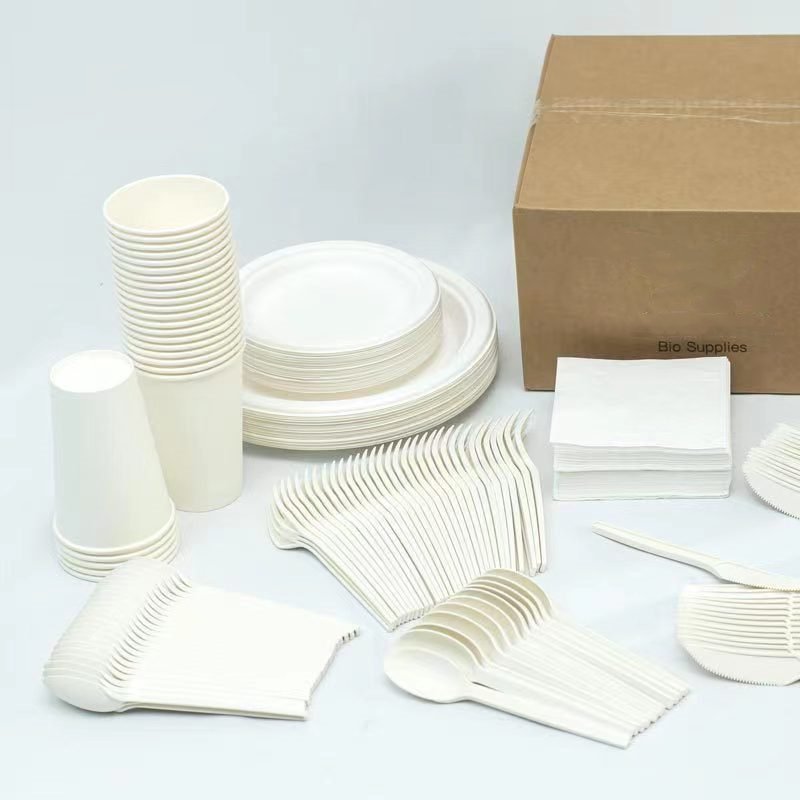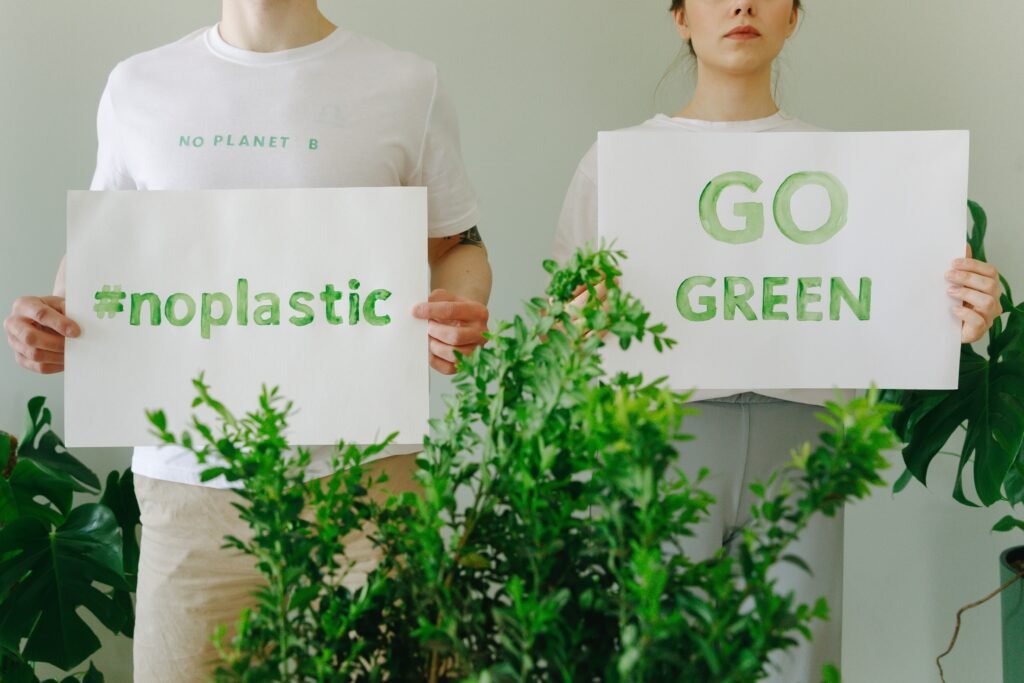Plastic tableware has long been a staple at parties and events. However, the environmental impact of single-use plastics is a growing concern. As the CEO of HMZ Technology, I am dedicated to finding and promoting sustainable solutions. Let’s explore the top 10 eco-friendly alternatives to plastic tableware that can help you reduce your carbon footprint and make a positive impact on the environment.
Eco-friendly alternatives to plastic tableware are becoming increasingly popular due to their sustainability and reduced environmental impact. These alternatives include materials like bagasse, bamboo, palm leaf, and more. By choosing these options, you can host a green event without compromising on quality or aesthetics.
These alternatives not only help in reducing plastic waste but also support a more sustainable lifestyle.
1. Bagasse Pulp Tableware
Bagasse pulp tableware is made from sugarcane fiber, a byproduct of sugar production. It’s biodegradable, compostable, and sturdy enough to handle hot and cold foods. At HMZ Technology, we offer a range of bagasse tableware including plates, bowls, and cups, which decompose within 60 to 90 days. Our ability to customize all pulp tableware and other packaging to your specific needs sets us apart in the industry.

2. Bamboo Tableware
Bamboo is a fast-growing, renewable resource. Bamboo tableware is lightweight, durable, and biodegradable. It’s an excellent alternative to plastic for both everyday use and special occasions. Bamboo utensils and plates can be reused multiple times before they start to wear out.
3. Palm Leaf Tableware
Palm leaf tableware is made from naturally fallen palm leaves. Each piece is unique and compostable. This type of tableware is sturdy and can handle a variety of foods, making it perfect for parties and picnics.
4. Cornstarch Tableware
Cornstarch-based tableware is another biodegradable option. It’s made from corn byproducts and breaks down faster than traditional plastics. Cornstarch tableware is typically used for disposable cutlery, plates, and cups.
5. Edible Tableware
Edible tableware is an innovative concept where the utensils and plates are made from food-grade materials that can be eaten after use. These items are often made from ingredients like rice, wheat, and other grains. Edible tableware is not only zero waste but also adds a fun twist to meals.
6. Recycled Paper Tableware
Recycled paper tableware is made from post-consumer waste. It’s a great way to reduce waste and promote recycling. While it’s not as sturdy as some other options, it’s perfect for dry foods and lighter meals.
7. Wooden Tableware
Wooden tableware, including utensils and plates, is another biodegradable option. These items are often made from sustainable wood sources and are sturdy enough for a variety of foods. Wooden tableware adds a rustic touch to any event.

8. Wheat Bran Tableware
Wheat bran tableware is created from compressed wheat bran and is fully biodegradable. It’s a unique and sustainable option for disposable tableware, and it can even be composted after use.
9. Areca Palm Tableware
Areca palm tableware is similar to palm leaf tableware but is made specifically from the areca palm tree. These items are durable, compostable, and have a natural, earthy look that appeals to eco-conscious consumers.
10. PLA (Polylactic Acid) Tableware
PLA tableware is made from fermented plant starch, usually corn. It’s compostable and a popular alternative to traditional plastic tableware. PLA items look and feel like plastic but break down much faster in composting conditions.
Frequently Asked Questions
What are the advantages of bagasse pulp tableware over traditional plastic or Styrofoam tableware?
Bagasse pulp tableware is biodegradable and compostable, making it environmentally friendly. It is also sturdy, heat-resistant, and suitable for both hot and cold foods. Traditional plastic and Styrofoam tableware are not biodegradable and can release harmful chemicals into the environment.
How long does it take for bagasse pulp tableware to decompose?
Bagasse pulp tableware typically decomposes within 60 to 90 days under commercial composting conditions. In contrast, plastic and Styrofoam can take hundreds of years to break down.
Is bagasse pulp tableware microwave-safe?
Yes, bagasse pulp tableware is microwave-safe and can withstand high temperatures. It is also suitable for use in refrigerators and freezers.
Can bagasse pulp tableware be customized?
Yes, at HMZ Technology, we offer customization options for our bagasse tableware. This allows you to choose designs that match your branding and event themes. Additionally, we specialize in customizing MAP trays with different films, including PLA laminated trays, PP laminated trays, PET laminated trays, CPET, or high barrier films. Our custom mold cost is the lowest in China, as we manufacture the molds ourselves, ensuring cost-effective solutions.
How does bamboo tableware compare to other eco-friendly options?
Bamboo tableware is highly durable, reusable, and biodegradable. It stands out for its lightweight nature and the fact that bamboo is a rapidly renewable resource. Compared to materials like plastic, bamboo is a much more sustainable choice.
What is the best way to dispose of edible tableware after use?
Edible tableware can be consumed after use or composted if not eaten. It provides a zero-waste solution, making it an ideal choice for eco-friendly events.
Conclusion
Switching to eco-friendly alternatives for plastic tableware is a small step that can make a significant difference. By choosing materials like bagasse, bamboo, and palm leaf, we can reduce our environmental impact and promote sustainability. At HMZ Technology, we are committed to providing top-quality, sustainable food packaging solutions to our clients. Let’s work together to make our planet greener and healthier.
For more information on sustainable tableware options and how HMZ Technology can help you make the switch, feel free to contact us or visit our website. Together, we can create a greener future.
Thank you for reading, and I look forward to helping you find the perfect sustainable solution for your needs.

